
Editor’s Note: Jamie is a friend and a former contributor to this blog. I am so honored to have their contribution as the 150th post in the #AMPLIFY project. That’s a big milestone. Jamie’s milestone as the first legally recognized non-binary resident of the United States is pretty damn big, too. Read on …
Name: Jamie Shupe
Age: 52
County of Residence: formerly Allegheny County
Preferred Pronouns: Jamie, They, Them, Their
How do you describe your identity? I tell people that to understand me I want you to picture that I had a white mother and a black father. That would make me a mixed race child. But now let’s replace “mixed race” with “mixed sex.” And just as you would not expect that mixed race child to become all white or all black, you cannot reasonably expect me to become all male or all female. Because I have mixed sex characteristics in the same way that mixed race child has mixed race characteristics. And in discovering that I could no more cut ties to my male and female characteristics than that child could cut ties to the white and black races, I have demanded to live and be classified as exactly what I am: a mixture of the sexes.
I won that right in court.
I’ve had people say to me, reporters even: “show me or tell me something that proves you have these female characteristics?”
And I’m not scared to publicly tell them that despite having perfectly working and formed male biology, my brain tells me I have to sit or squat to pee. That’s a distinctly female trait that nature hardwired into my brain. And I’m full of those type differences.
Nature zinged me clean out of the patriarchy. I’m a super feminized biological male. And I’m not scared to tell anyone that, or to live like that. But that male biology doesn’t make me male with those female sex characteristics.
According to the Government, your gender identity is your sex.
Please describe your coming out experience. Where did you find support? What challenges did you face? Meeting that trans woman set in motion me beginning to research online why I felt that I had never had any male identity whatsoever. And that online search quickly led me to Reddit, where I found thousands of people who were describing themselves in the same way that I felt.
One of the byproducts of the online searches was finding an essay by Psychologist Ann Vitale that talked about the effects of gender dysphoria throughout the lifespan if left untreated. It said things like ending up at my age, curled in a ball on the floor, holding your genitals, and crying hysterically. I wasn’t far from that.
I agreed with mostly everything in the essay and felt it described me really well, but with some exceptions, such as I didn’t have any dysphoria about my genitals. The essay also led me astray in that it basically reinforced the belief that if you’re not male, then you have to be female. So I thought I was a female at that point. Which is really confusing at that early stage when you start exploring your gender identity versus your actual biology.
Reading that essay was another milestone moment in my journey because it upset me so badly that after I finished crying, I literally demanded that my spouse read it that evening after dinner. Which she did, and when she finished reading it, I explained that I thought I was a transgender woman and that I wanted to transition. I also told her I felt like I was at the end of my rope, explaining if I couldn’t start living as something other than a male, that I just wanted to commit suicide and die. After reading that I really felt I either had to transition or just shoot myself in the head and get it over with. We both chose for me to live and transition.
I learned from Reddit that transgender women take female hormones, and I immediately wanted to start. The hormone step however introduced me to the challenges of trans health care.
At this point I had moved from Hagerstown and was now living in a very secluded cabin near Deep Creek Lake in Western Maryland.
I eventually found a local mental health nurse practitioner that agreed to start me on female hormones, but that immediately soured. She told me upfront that she knew nothing about treating trans people and that I would ultimately have to get care from an endocrinologist. So we agreed that she would start me on hormones, find me an endo, and then pass me off. That didn’t happen. The endo’s in that rural area all refused to treat me, which really scared her. And that led to her basically dropping me as a patient very shortly later.
The medical care fiasco in Western Maryland sent me scurrying north to Pittsburgh, landing me at Metro Family Practice. That was a game changer because unlike what had happened to me in Maryland, Metro was embracing me as a patient. So as soon as the lease was up on the cabin, I moved to Pittsburgh and settled just outside the city.
Living in Pittsburgh was my first real taste of starting to live openly as a transgender woman. The things that happened in Pittsburgh and the people that I was exposed to were the forces that shaped who I would eventually become. Some of that was life changing wonderful and some of it was off the charts trauma. I had neighbors cuss me out for wearing women’s clothing. I had problems using female bathrooms at businesses. And I begin to experience rejection by transgender women for not doing enough to look like a woman; whatever that means.
The message I felt like I was getting was that trans women expected me to dress super feminine or they didn’t want to hang out in public with me. I also started learning that I was supposed to be ashamed of my genitals. I was taught I was supposed to say my penis was a birth defect, and that I was born into the wrong body. I didn’t agree with any of that. At one point, a cis woman and a trans woman handed me a makeup kit at a PFLAG meeting. Their message: you’re not acting and looking like a woman. None of it made any sense to me, but I kept trying to fit in with trans women, but It didn’t work because I was unwilling to change. I felt no more connected to them than I did to men or cis women as far as my gender identity.
The other thing I got educated on while living in Pittsburgh was LGBTQ protection laws. Or, I should say the lack of. I began to understand that all the things I took for granted as a straight, white male mean nothing after you transition to being trans. I had become a hated minority, and I was getting treated like one. I was now scared to venture outside of the city. When I changed my name at the courthouse, the guard made me use the men’s room, despite being in a wig and female clothing. I made the jerk guard the door. The hostility to being trans, the fear I then felt when out in public, the lack of protection laws in the city of Pittsburgh and state of Pennsylvania, and my inability to connect with trans women sent me west to Portland, Oregon. It was an anguishing decision, because I had also crossed paths with some really wonderful people, but it was a journey I felt I had to make, because I refused to live in fear.
After landing in Portland, I continued to explore my gender identity. I just jumped right in with every group I found, feeling them out, and seeing how they impacted me. I had dinners with a crossdresser club. I went to support group meetings and events with trans women. I got a dose and introduction to radical feminism. And for the first time I began to discover the genderqueer community.
But the discovery of the genderqueer folks didn’t click immediately because I was still kept trying to fit myself into being a trans woman, and failing more and more at it. But as the failures to assimilate as a female mounted, the genderqueer thing started making more and more sense to me. I had found my tribe and discovered my true gender identity.
But finding my tribe and gender identity also opened up a huge problem, because being genderqueer meant I had no legal existence. Which unlike being a trans female, I was legally a female for all intents and purposes under the law. Identifying as genderqueer meant no legal protections whatsoever. And that seriously troubled me. So that set the stage for me beginning to read queer legal doctrine. And then ultimately mounting the successful court challenge to gain those legal protections.
That court victory led to me becoming the first legally recognized non-binary person in America. My actual sex had been declared as non-binary. And that was huge, because “sex” equals protections under the law.
How would you describe yourself NOW in terms of “being out”? I don’t think you can get any more “out” than I currently am. I walk my dog in a dress some days. I don’t wear wigs anymore. I make no effort to perform that over the top past level of trying to appear super feminine so that people would call me female pronouns instead of Sir.
I’ve been in the media around the globe because of the court victory. I’m topless on the Vanity Fair Italy website.
These days I have total freedom in my gender expression. I present in any manner I choose depending on my mood or needs. My gender identity is still highly feminine, but I’ve been freed from the confines of both manhood and womanhood. Nowadays: I’m just a human, that gets to exist outside of the confines of the gender binary. And it’s wonderful!
The correct treatment for my gender dysphoria wasn’t to make me fully male or female, the needed treatment was to remove the classification system that was harming me, and pressuring me to conform.
Tell me about the first LGBTQ person whom you met. What impact did they have on your life? Until I was 48, I led an extremely closeted, straight, married, white male existence. I was in total denial about who I was and my gender identity was completely suppressed. But while my gender identity was suppressed, I was not happy in that state, and intense feelings of not being male kept bubbling up to the surface, wanting me to experiment. Part of that experimentation led me to start visiting a gay/lesbian nightclub in Boonsboro, Maryland. I was living in nearby Hagerstown at the time. And one weekend evening I was there at the bar with my cisgender spouse, I saw this gorgeous trans woman. I was completely mesmerized by her self-confidence and complete openness about who she was. I was sexually attracted to her big time also. But when we crossed paths, I had no idea that I was trans also, and that chance meeting with her sparked a little flame inside of me that just kept growing into a bigger and bigger fire that I eventually couldn’t contain. That was my gender awakening moment, which set me on a path of exploration, and ultimately my journey.
Past or present, favorite LGBTQ character or creator in television, film or literature? Please tell us why. Shocker: I like Caitlyn Jenner the most.
Why?
Because Jenner is hands down a better leader for the trans community than all of her critics combined. Jenner isn’t the one spending her time writing Op Eds all over the Internet attacking other members of the trans community. And Jenner has a way better grasp of exactly what’s needed to help the trans community.
We needs jobs, discrimination protections, and HIV prevention.
According to the CDC 56% of trans women of color have HIV right now. Legalizing sex work isn’t going to help them. These trans women can’t even participate in legalized sex work being HIV positive.
Nothing showed the cracks in the trans community more than when the trans military ban was lifted on June 30th. All over Facebook I saw trans people attacking their trans military counterparts. I’m retired Army, and although I expected to see that, it was still hurtful.
Jenner understands the big picture issues and stays above the fray. And she isn’t swayed when she shouldn’t be. I’m sick of seeing people trying to tear down successful members of the trans community. All of us deserve to have heroes. Jenner is my princess in the mansion on the hill. She made it. And I’m glad, because success is often elusive for us.
How do you stay informed about LGBTQ issues? I’m completely retired due to the extent of my PTSD and other health issues, so that gives me a lot of time to read news articles. The news articles are a great fit, because I lack the ability to concentrate on big things like books. And over the past three years I’ve put over 2,600 trans people on my website based on tens of thousands of trans news articles I’ve looked at. Doing so has taught me an incredible amount about trans people, the LGBTQ community, and feminism. At this point I’m probably as educated as some gender studies professors. I don’t take days off from reading trans news. And I don’t miss any stories if I get behind in my reading for whatever reason, because I have news alerts setup to send them to my email account. If there’s a news article with the word “transgender” in it, Google sends it to my email. I also have Google alerts for many other words such as “sex reassignment surgery” etc.
Describe your geographical community. I live in the heart of Portland. You could easily exist here by bike, streetcar, or bus, but we still have a car by choice for outings. It’s dense residential and fairly expensive, but I don’t consider the cost much different than Pittsburgh. We walk a lot now. I have five major grocery stores within walking distance. Coffee is the lifeblood of Portland. Marijuana is legal and available all over the city. There’s sex clubs here that some transgender women go to meet men on trans nights. Portland is extremely LGBTQ friendly. I think of it as the American equivalent of Amsterdam.
That said, you can find discrimination problems when you venture out of the city. The further you go, the further things have the potential to deteriorate. Idaho sits to our east and Washington state has had a lot of problems in the last year with conservatives and religious folks trying to overturn their trans protections. And those have been very well organized and funded political attacks.
Describe your local or regional LGBTQ community. My local LGBTQ community is the same as all the other ones elsewhere with the exception of nobody has to hide anything here in Portland. You get to be out, open, and who you are here. That said, what I see from an on the ground perspective is you have the usual advocacy organizations, and the usual events such as Pride. I can’t really think of any bars or clubs here that are completely or even mainly associated with being trans here, because trans is so normal and accepted. So we don’t have commercial places operating as safe places like you do elsewhere and in Pittsburgh.
All that said, as always the most vocal element is the queer community. It’s these folks and those that identify as trans that I see at the community rallies. The transsexuals that just live and identify as women refuse to be seen or associate with us at these rallies or events. So we’ve got the same community fractures and divides in that respect too.
As far as trans resources, to include medical, I think we have some of the best in the country here in Portland.
Portland also recently designated all government owned bathrooms that are single occupancy as gender neutral.
I found the friendliness, acceptance, safety, trans protections, and all other forms of resources that I sought by moving to Portland. But I miss you Sue.
Have you ever experienced discrimination based on your identity? Specifically, in a job setting, when applying for housing or while in public. Yes. I was harassed in Pittsburgh for using female bathrooms. I was discriminated against by the Army. The Army tried to make me have SRS and relinquish the military benefits of my spouse in order to get an ID card that had Jamie Shupe on it instead of my old name.
And, of course, I have been verbally abused by people in public for being trans.
Are there issues impacting your LGBTQ neighbors that aren’t visible or part of the local dialogue? Yes. Serious ones.
We need binary identifying trans people to recognize the needs of non-binary and genderqueer people. Everyone’s been acting like we don’t exist, or don’t matter.
We do. Our needs our real. And I just gave us a very public, legal existence.
Binary trans people are existing under the cis legal umbrella, I just made non-binary and genderqueer it’s own actual sex. There is now a third sex in America.
When you create the right for trans people to enter cis binary bathrooms, you’ve done nothing for me, and those like me. I need gender neutral bathrooms and locker rooms to feel safe. Lot of people like me describe feeling like they don’t belong in a male or female bathroom. I feel the exact same way.
We’re here. We’re queer. Stop ignoring us!
What would you like to see elected officials do to improve life for LGBTQ Pennsylvanians? No matter where you live in the U.S., we have the same uniform problems. One of which is the protection laws and ordinances lack teeth.
The North Carolina bathroom law was written with no penalty. And many LGBTQ protection ordinances are the same way.
I was told that about Pittsburgh’s non-discrimination ordinance by the Human Rights Commission. When I tried to file a complaint, they told me there was no penalty for what had happened to me. And to take that issue up with the elected officials if I didn’t like it.
We need real penalties for harming us. Actual fines etc.
Real life and scores on the equality index are not one and the same.
Elected officials also need to start upgrading computer systems to allow for sex/gender categories other than male or female.
Since the court victory, I’ve found that my biggest hurdle is just that: computer systems.
Please share a lived experience, anecdote or fact about life as an LGBTQ person in your community. It was online, but I recently saw a 10-year-old conversing with a non-binary teen in a news article. The kid said to the Enby (slang for non-binary): “wow, I can be like you?” And asked: “is non-binary is a real thing?”
All I could think reading that was: “Yes, yes it is. Just refuse to participate. Refuse to be classified as male or female. Demand to have your gender identity recognized. Live at your full potential instead of what the gender binary says you can be.”
Beyond discrimination, what other barriers create challenges for your LGBTQ neighbors? We have a huge and looming problem with LGBTQ baby boomers, especially on the trans side of the house. We’re going to need nursing homes and senior communities that will accommodate us.
I recently read about a trans woman in Ohio that was refused admittance to over 90 nursing homes to recover from an illness. They viewed her as being a man and refused to put her in rooms with other women.
Lots of trans people have began to come out, especially all the older ones like me who were denied that right because of the period in history that they were born in and grew up in. This issue is going to be a crisis which ends badly if not dealt with and planned for.
I’m very fortunate to be under the VA umbrella for medical care as a disabled vet, so they can’t discriminate against me being a government agency, but the civilian sector is still a mess with all the various state laws.
We also still have a huge mess also with all the states that refuse to change birth certificates or give other trans rights without having surgeries. That’s a form of genocide. It’s disgusting.
We also still have nearly non-existent insurance coverage when it comes to preserving sperm or eggs for future reproduction. Trans people deserve to be able to have kids, but they usually get sterilized by hormones and anti androgen drugs. We need to fix that. It’s a serious human rights issue.
What LGBTQ friendly resources are available for your neighbors? The folks performing crisis work such as the Trans Lifeline call center give me tears. That work is so important, especially during the dark days we’ve had over the past year. There’s a real need for that. Same goes for LGBTQ community centers that provide meeting and support group spaces. Our LGBTQ youth are really fragile and they need these supports.
I’ve tried to get some folks here in Portland to write a media story about how the Pacific Northwest is full of LGBTQ people that have fled hostile states like North Carolina, and families that have refused to accept them. Lots of these folks show up here homeless.
In the same way that neighboring states complained about marijuana from Colorado spilling over their borders and increasing law enforcement costs, Oregon and Washington ought to sue states like North Carolina and Mississippi for the cost of caring for their homeless LGBTQ people. It’s that bad.
I know trans women here in Portland that live in homeless camps. I see trans women lined up in the mornings at a women’s daycare center after the homeless shelters have kicked them out for the day. These are not trans women that are native to Oregon; they came from elsewhere. But as sad as that may sound, they’re safer here living as homeless than they are in some of those states.
What is your greatest fear for the LGBTQ community in Western Pennsylvania? Republicans, hardline conservatives, tea baggers, and religious zealots passing hate laws, or removing existing protections. And the real threat of violence for being who we are. What happened in Orlando says it all.
What is your greatest hope for the LGBTQ community in Western Pennsylvania? Freedom to exist as we are, out and open. In my ideal world we will all get to exist without fear of discrimination.
I also hope the creation of the non-binary sex will take the pressure off of some trans people to feel that they have to conform or transition to male or female, when something else is more appropriate for them and their needs.
Being trans shouldn’t mean you never get to have kids.
What can allies do to support your LGBTQ community? Create more gender neutral facilities, especially single-occupancy bathrooms. There’s no possible argument over a bathroom like that. Everyone gets safety and privacy.
How can gay men and lesbians support the bisexual, transgender and queer members of our community? They can help by realizing we’re all in this fight together. If any of us go down, we’re all going down together. I think a lot of the radical feminists realized after HERO in Houston, and after Charlotte in N.C, that the trans community can be used to get to them too. When trans people, queer people, or non-binary people lose their rights: lesbians and gay men do too.
What motivated you to take part in this project? Telling our stories is important. Sharing our values and beliefs is important, even if it creates discomfort for some because they’re different.
I was moved to tears recently when the parent of a trans child confided that they had to promise that child they would find someone else like them in the world. Any of us just might be that person to someone who’s searching.
Finally, what question should I have asked? Please also share your answer. Nothing immediately comes to mind on this. If it does I’ll let you know.
Thank you, Jamie.
Read the entire AMPLIFY LGBTQ Q&A archive.
AMPLIFY LGBTQ is a series of blog posts designed to give a “signal boost” to the voices of our LGBTQ neighbors throughout Western Pennsylvania. We are using a Q&A format and will minimize editing their responses.
Our intent is to highlight the voices of marginalized members of our community who are not always invited to the table or whose voices are not heard. These are glimpses in to the lived experiences of LGBTQ people in Western Pennsylvania as told in their own voices. If you would like to participate, please email me pghlesbian at gmail or visit the online Q&A.
You can read the other Q&A responses here. AMPLIFY! LGBTQ is a project of Most Wanted Fine Art and Pittsburgh Lesbian Correspondents.


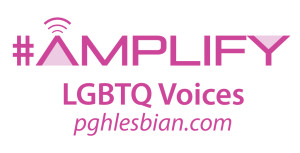
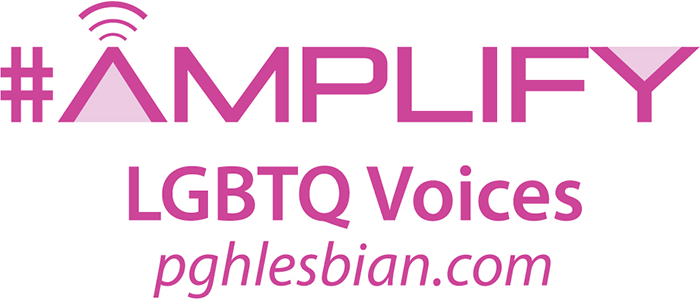
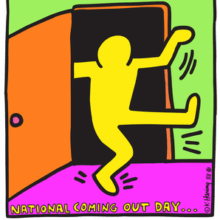
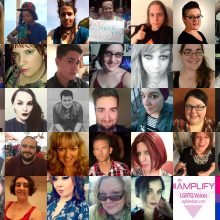
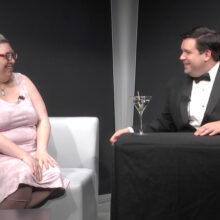
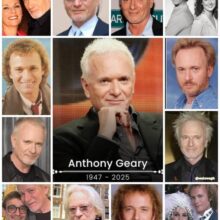

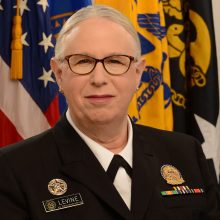
This is wonderfully written and some unbelievably informative. Congratulations Jamie you have lit a light. Thanks for keeping it burning.
actually that is supposed to be “so unbelievably informative..”